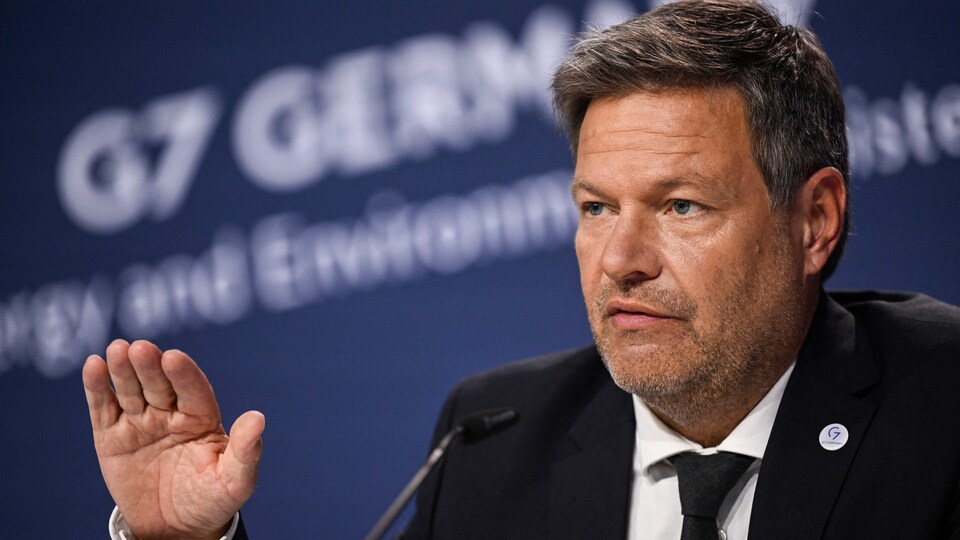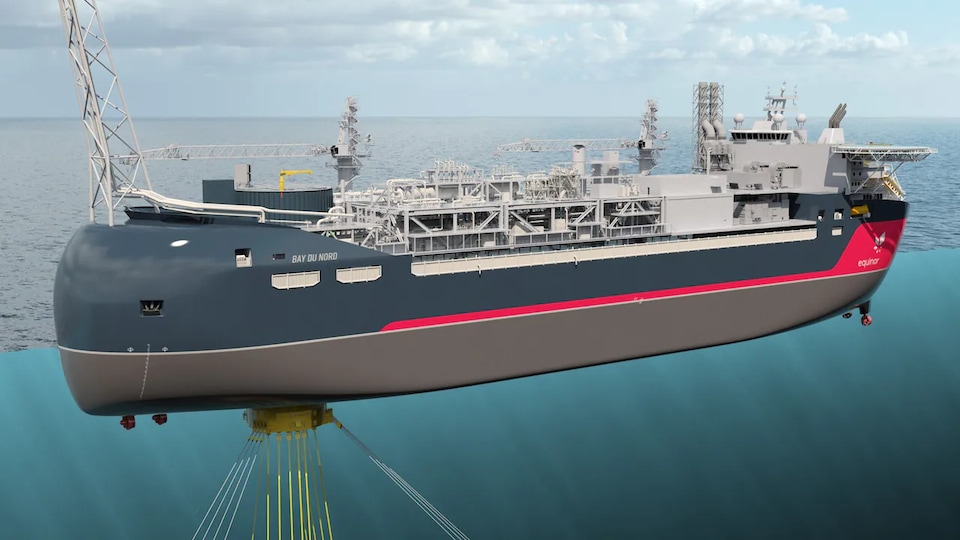Contrary to the predictions of some analysts, the war in Ukraine has “not at all” restored the climate goals of the world’s major economies, says the Minister of Environment and Climate Change, Steven Guilbeault, joined Berlin in a meeting with his counterparts in the Group of Seven.
There is a feeling that if we do not support each other between democratic countries, there are very few chances that we can govern on a planetary scale.observation of the activist turned politician.
At the end of this meeting, the ministers took part in particular decarbonize their power grids by 2035 and phase out international financing for fossil fuel projects by the end of 2022.
However, conflict must lead most industrialized countries to make choices pragmatic at least for a short time.
The question of natural gas
As such, it addresses the need to help European countries overcome their dependence on Russia’s natural gas, a goal that qualifies. immediately in the last communiqué of the G7. The document called for increased exports of liquefied natural gas to recover gas supply disruptions in the European market.
In a statement, Canadian Natural Resources Minister Jonathan Wilkinson confirmed that Canada has the ability to help Europe by increasing its oil and gas exports by approximately 300,000 barrels per day (200,000 barrels of oil per day and 100,000 barrels of oil equivalent per day of natural gas).
Steven Guilbeault wants to point out that this has not been done, and the possible increase in Canadian exports will not come to increase the world’s natural gas production, but instead replace Russia’s gas supply. From a climatic perspective, we are not going to change anythinghe says, pointing to the lower carbon footprint of Canadian gas.
He also stressed the temporary aspect of such an initiative. It is very clear, both for us and for Germany, that this is a short -term solutionsaid the Minister.
The German example is eloquent, as Europe’s leading economic power depends on the Russian market for half of its natural gas needs.
However, Germany just doesn’t want that Discard its dependence on Russian gas; he wants remove your addiction to fossil fuels, periodsaid the Canadian Minister of the Environment.
The latter was recorded as proof of the presence of three German ministers at the G7 meeting, from the environmentalist party Alliance 90/The Greens, a member of the ruling coalition led by Olaf Scholz.
Referring to a conversation with one of these ministers, the elected Liberal said with a touch of humor that neither he nor I are fond of liquefied natural gas.
However, the search for an immediate alternative to Russian gas in Germany is the kind of choice where facing all nationssaid the Minister.
” I am not fond of natural gas. But will we refuse Europe or Germany when they are not sure they will have enough gas to heat themselves and run their businesses next winter? “
I think we can make practical decisions in a short timesaid Steven Guilbeault, while honoring our medium and long -term commitments in combating climate change .
According to him, this is what Canada will do by exporting more natural gas to its European allies.
To help European markets, Canada should have an export terminal on its Atlantic coast. Minister Wilkinson affirms that it is possible to achieve this within three years by converting existing infrastructure, specifically in New Brunswick.
In the medium term, these facilities will be converted to produce hydrogen, explains Steven Guilbeault, citing this energy source. can help reduce our reliance on fossil fuels.
A controversial choice
It was also the pragmatism that guided the minister’s decision to approve the Bay du Nord oil project off the coast of Newfoundland, although he set aside the idea of oil as transitional energy.
Environmentalists have criticized this decision as inconsistent with the recommendations of the latest report IPCCwhich requires a substantial reduction in the production of fossil fuels.
The Minister himself described this decision as difficult, a situation that occurs when considering the interests of the entire population.
Asked if these criticisms reflect the G7, the minister responded in the negative, while defending his choice.
He recalled that the day he gave the green light to the Bay du Nord project, he confirmed to the country’s largest producer of oil sands, Suncor, that it needed to return to do its homework for a project. ten times more energy intensive.
The Alberta company has requested more time before submitting an environmental impact study for its Base mine expansion project, near Fort McMurray
The government approved this request for a delay, noting that in its current form the project has not met the government’s carbon reduction targets.
Between the two projects that will have impacts, I chose the one with the smallest said the Minister.
Next stop: Stockholm
After Berlin, Steven Guilbeault must now go to Stockholm, Sweden. Canada will host the Ministerial Meeting on Climate Action (MoCA6), an event co-chaired with China and the European Union and will take place on May 30-31. Representatives from 30 countries are ready to discuss the implementation of the Paris Agreement, including carbon pricing systems.
Minister Guilbeault will be co-chair at another event, Stockholm + 50to commemorate the 50the anniversary of the first of the 1972 United Nations Conference on the Human Environment (New window). This first Earth Summit made the environment an important global issue for the first time and resulted in many new agreements on environmental protection.
The former activist was inspired by this example. He said he sees no alternative to multilateralism, which necessarily involves more compromise than within one country.
The more people around the table, the more complicated it ishe agrees. I think we are doomed to find solutions that are always not perfect. Some will want more, some less. I accept and accept that fact.
Source: Radio-Canada

